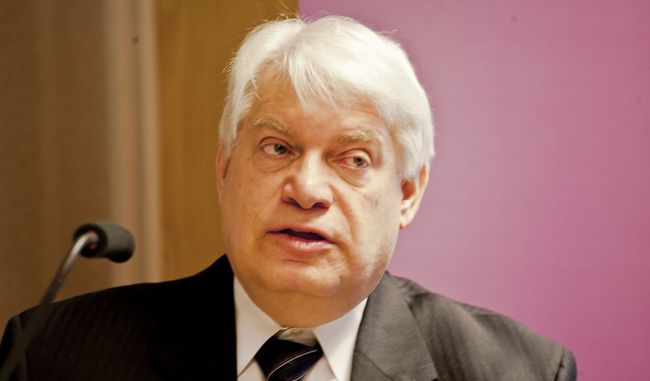How to Defend Ukraine

The Minsk 2 agreement is already a dead letter. Indeed, Moscow and then Kyiv violated it from the outset. Consequently almost everyone now expects a new Russian offensive as soon as conditions on the ground permit whether it aims at Mariupol or possibly towards the military-industrial center in Kharkiv, or even possibly a third target. Under the circumstances it behooves not just the Ukrainian government, but also Western governments to devise a strategy for Ukraine. And a strategy that enables both the West and Ukraine to meet Moscow’s threats must be adequate to the multi-dimensional threats confronting both parties. This means that Kyiv and its allies abroad must tirelessly pound home the point that this war is a threat to European and international security, not just Ukraine. Neither is it merely a civil war among Ukrainians.
This also means that merely giving Ukraine the weapons it needs and has asked for Ukraine to defend itself is not enough. Failure to address the other challenges inherent to Ukraine’s present situation and to Russia’s threats ensures the success of Russia’s campaign which is to make Ukraine ungovernable, isolate it and Europe and open the way either to further territorial amputations or to a new “counter-Maidan” that would replace the current government with one more to Putin’s liking. Therefore the strategy must be multi-dimensional and enjoy sustained Western and international support.
At the military level this strategy should consist of providing Ukraine with the weapons it has asked for repeatedly and which allow it to defend itself and increase the costs to Russia of its continuing aggression. Unfortunately for the moment launching offensives into Russia or regaining Crimea are not viable military options. The provision of these weapons must also be accompanied by a Western program to help reform the Ukrainian military to transform it and its command structures into an effective, democratic fighting structure that is also accountable under democratic procedures to civilian authority. Likewise, the structures of internal security, e.g. police, must be transformed since so much of Russia’s challenge takes place at the level of threat to which police forces are supposed to respond.
At the same time democratic reforms, eliminating corruption, and opening up the economy must continue to prove to the West that Ukraine merits and deserves assistance. It is now clear, e.g. that Russia’s strategy to isolate Ukraine in Europe is essential to its policy. It intends to eliminate all energy contracts by 2019 leaving Ukraine totally cut off from any but Russian gas with no means to gain leverage on Moscow by continuing as a transit state. In reply Ukraine must seize every opportunity to make it desirable for Western energy firms to invest in Ukraine to look for both conventional oil and gas and unconventional or shale oil and gas. The process of obtaining gas from its neighbors must continue and intensify and the EU should continue building interconnections throughout Eastern Europe that include Ukraine as part of their routes. Simultaneously it is essential for the US to make the necessary investments and change its legislation to facilitate the large-scale export of oil and gas to Europe.
On the larger macro-economic scale it is no less vital to create the conditions for the expansion of a democratic privatize, and less corrupt economy and state, not just to impress the West but to strengthen the security of the state against its penetration by various Russian political and criminal organizations as has been the case sine 1991. Getting rid of oligarchical control is not only a matter of interest, but also of security for corruption erodes the foundations of statehood. Only in this manner can Ukraine continue getting the help it needs and then being able to pull itself up by its own efforts so that eventually it can fulfill its newly passed legislation about joining the EU and NATO. Systematic reform is therefore not just good politics, but also a security multiplier.
Lastly the West and Ukraine must devise and fund a sophisticated information strategy to reach out to Russian speakers in the Donbas and Russia and tell them the truth about this war of aggression and counter Russia’s information warfare inside and outside of Russia. Ukraine and its partners must make clear to audiences that Russia is waging a terrorist campaign of aggression that is ruining Russia, generating many thousands of casualties, and sustaining costs that will rob the Russian people of their security and prosperity. This author has heard reports that the war costs Moscow $120 million daily. Such figures must be verified and brought home to the Russian public for to sustain the annexation of Crimea, Moscow has had to cut old-age pensions, undermine essential infrastructure projects in Russia, stretch out defense programs, etc. Moreover, the sanctions are not part of an anti-Russian aggression campaign but the direct response to open aggression. The Russian speakers in the Donbas who are suffering no less from the gangster-like tactics of their Russian occupiers must also hear this message while Kyiv must show by word and deed that it has not and will not forget about these people. If the West and Ukraine can find the means to sustain this kind of multi-dimensional resistance and strategy to Moscow’s terrorism and war then they will be able to resist Russia with more than just hope of success.
Stephen Blank is a Senior Fellow, American Foreign Policy Council
Newspaper output №:
№27, (2015)Section
Day After Day





